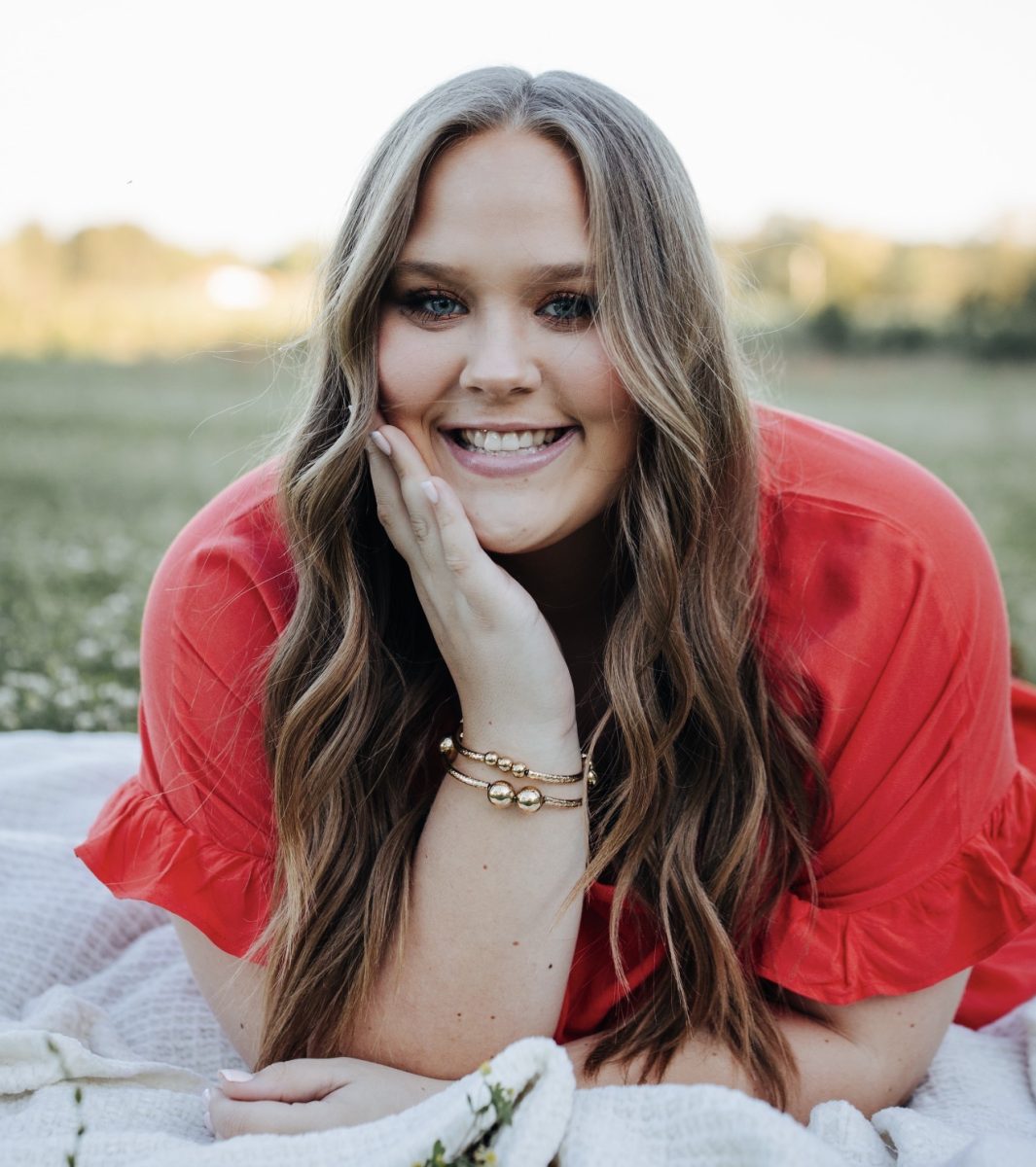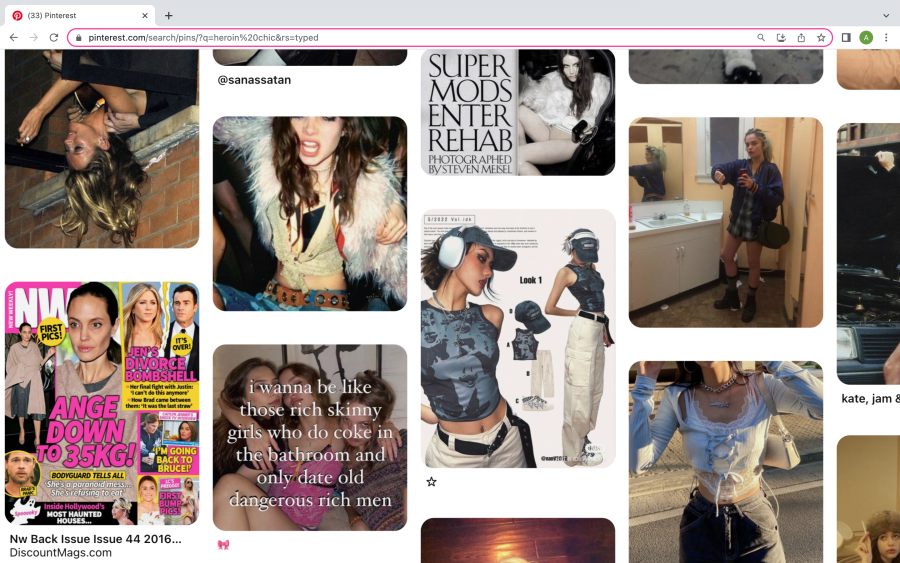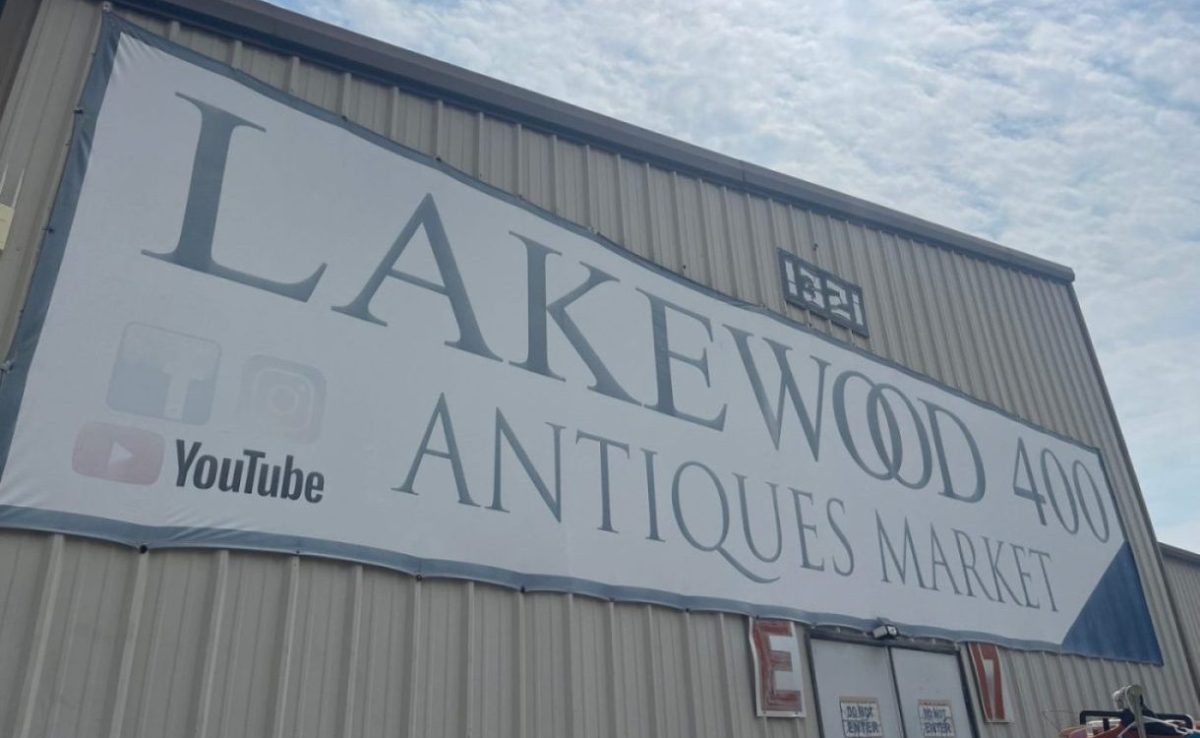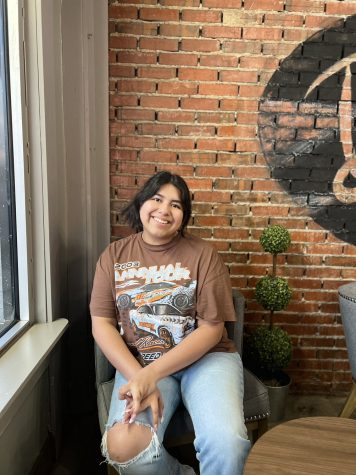Mini-skirts popularized by Miu Miu and low-rise jeans from the early 2000s are making a comeback. This is shifting the standard of how clothing is worn; by only skinny people with “11” line stomachs. Trends come and go like a pendulum. With the 2010s “love yourself” and “body positivity” movement transforming into a “only love your good parts and fix your bad ones” message, the trends have now shifted back to diet culture.

Apps like TikTok and Instagram portray “clean girl” aesthetics and unrealistic healthy lifestyles to young women, making them feel obligated to make their lives as perfect as possible. Unfortunately, toxic diet culture is not a new topic. Prior generations have also struggled with how a lady should look, forcing degrading trends that make them feel worthless.
“Diet Culture,” according to Embody Health, is “a system of socially constructed and conditioned beliefs that thinness is synonymous with health and associated with a sense of moral virtue.” They say diet culture, “often offers a culturally prescribed body shape – an ideal that preaches an ever-shrinking, ‘skinny,’ and sickly form, often only attainable through restriction and deprivation.”
Studies state that the idea of being “fit” or “healthy” originated in Greece. They correlate that being physically fit also meant being mentally fit. The term “ideal body” was first introduced in the mid-1800s, and people went to extreme lengths to achieve it. Around this time, women would starve themselves, also known as “Victorian Anorexia,” to look as thin and frail as possible. Fast forward to the 2000s, when businesses profited from actions like these.
“It was a tough time to go through puberty, especially during the peak of the early 2000s diet culture,” says Kate Nelson. She explains that at a young age she was influenced by popular culture to become skinny and would do anything to achieve it.
In elementary school, she knew she had an eating disorder. The Academy of Nutrition and Dietetics describes it as, “a range of irregular eating behaviors that may or may not warrant a diagnosis of a specific eating disorder.”

Throughout the 2000s, advertisements of extreme weight loss promote “fast and simple,” solutions such as Hydroxycut. This product was encouraged by many young women as an inexpensive way to lose weight.
“I’m out here thinking, in my mentally-ill teenage brain, ‘oh, this is great.’ I’m saving money!”- Kate Nelson
Before social media, many tabloids glorified celebrities such as Lindsey Lohan, Nicole Richie, and Paris Hilton on how thin they looked and how women should follow suit. The it girl for “Heroin Chic,” Kate Moss, proudly displayed, “Nothing tastes as good as skinny feels” on a shirt. Although she has now shown remorse for her actions, those words shaped an entire generation of how they view food and body image.
“I was socially rewarded for being thin, and it really encouraged me to keep up with my eating disorder.” – Kate Nelson
Whereas magazines before would promote “quick and easy” solutions to lose weight, social media users are now promoting sustainable, healthier ways to lose weight. However, Nelson still sees a part of the 2000s creeping into this new-age “wellness culture.”
A subreddit called “1200 Is Plenty” is dedicated to helping users find or share recipes to eat 1200 calories daily for weight loss. Nelson says, “this is stuff I remember from my teenage anorexia page.”

Mounjaro, an injectable medicine for people with type 2 diabetics, is in high demand due to non-diabetics taking the supplement for weight loss. Lanier Tech student, Marlyn Blanco, whose mother suffers from diabetes, is appalled by stories like these. “My mom couldn’t get her dose on time and to hear people are taking it as a weight loss supplement is something I couldn’t believe. How desperate are some people?”
Some influencers are stepping up to fight the new norm. Imani from @crutches_and_spice on TikTok declares the ‘thin-is-in’ a threat to our society and to be watchful of our children’s intake. As refinery29 puts it, “we can never become our ‘best selves’ through it.”
All body types are beautiful, valid and deserve to enjoy the fashion industry without any challenges. No one needs to feel excluded or not be given the same amount of attention as people that fit into the beauty standard.
As Nelson reminds us, “You are only alive for a little bit. The way you look is the least interesting part about you, and you’re only young for a little bit, enjoy this right now!”
If you or someone you know is going through something similar to this, call or text the National Eating Disorder Association hotline at (800) 931-2237
























